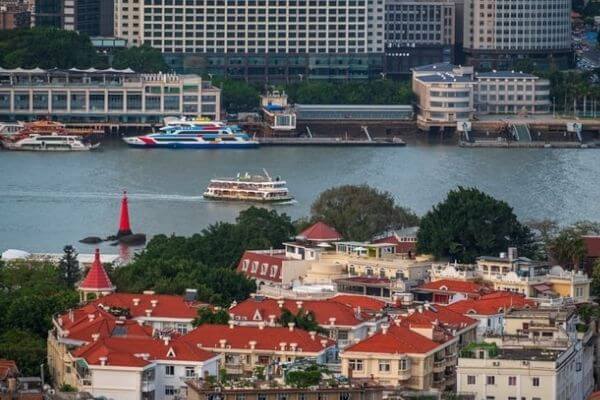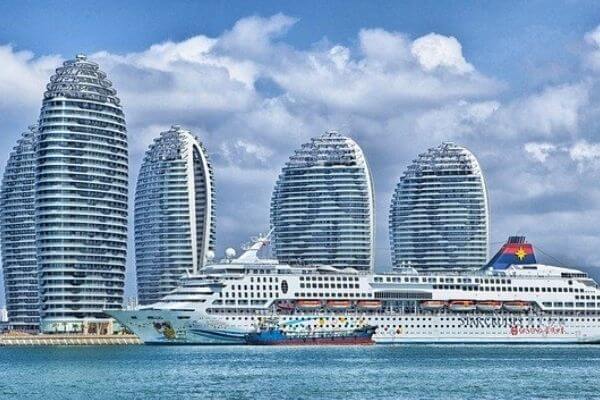
As to the foreign investment administrative mode, China is establishing a “Pre-establishment National Treatment + Negative List” to replace the previous “Positive List”.
National treatment generally means that a state gives others the same treatment as its own nationals. [1] In China, the term “pre-establishment national treatment” refers to treatment accorded to foreign investors and their investments at the initial entrance stage of the investment, which is no less favorable than that accorded to domestic investors and their investments. At present, China has just begun to adopt the “pre-establishment national treatment” step by step. Before that, foreign investors were not entitled to national treatment at the initial entrance stage, during which foreign investment was subject to more restrictions, such as prior approval by the Chinese government. Therefore, the pre-establishment national treatment actually enables foreign investors to enjoy equal treatment as their Chinese counterparts in all aspects of investment.
However, the pre-establishment national treatment generally has some limitations. In practicing pre-establishment national treatment for foreign investment, a State will normally issue a negative list at the same time. [2]The Negative List is a special administrative measure implemented by the State for foreign investment, which will prohibit or restrict foreign investment in certain industries. The State will give national treatment to foreign investment in sectors outside the Negative List. China has adopted the Negative List system in recent years, whereby foreign investors will only be prohibited from investing in sectors on the list. Prior to that, China was practicing a positive list system, whereby foreign investors could only invest in sectors on the list. Therefore, the negative list system substantially expands the investment scope for foreign investors.
“Pre-establishment National Treatment + Negative List” (“the System”) reflects a major change in the administrative mode of foreign investment in China: on the one hand, China’s control over foreign investors has been reduced from “under regulation at the initial entrance stage and national treatment after the entrance stage” to “pre-establishment national treatment”; on the other hand, China’s restrictions on the investment scope for foreign investors have been reduced from “investment only in industries within the Positive List” to “investment in all industries outside the Negative List”.
Based on the System, the Foreign Investment Law establishes an administrative mode, which is a major breakthrough in China’s policy of investment liberalization and facilitation, as well as in the market access system. [3]
This post, as the third article of China's Foreign Investment Law Series, will briefly introduce the System’s development stage and the Foreign Investment Law’s contributions thereto. My fourth article (forthcoming) will further explain the changes in the Negative List.
I. From “Positive List” to the current System
1. Establishment of the positive list system
Prior to the System, China had adopted a “positive list” administrative mode for foreign investment, i.e., specifying the areas in which foreign investment is permitted. In 1995, the former State Planning Commission, the former State Economic and Trade Commission and the former Ministry of Foreign Trade and Economic Cooperation promulgated the Catalogue of Guidance for Foreign Investment Industries (外商投資產業指導目錄), which stipulated three categories of foreign investment, including encouraged foreign investment industries, restricted foreign investment industries and prohibited foreign investment industries, thus establishing a “positive list” administrative mode for foreign investment in China.
2. Pilot of the System
On 29 Sept. 2013, Shanghai Free Trade Zone (FTZ) began to pilot the “Pre-establishment National Treatment + Negative List” system. [4]Since then, China has continuously expanded the pilot scope, while the number of restricted industries on the Negative List has been gradually decreasing.
3. Nationwide promotion of the System
On 3rd Sept. 2016, the Standing Committee of the National People’s Congress (NPC), based on the experience learned from the FTA, amended four laws related to foreign investment, including the Law of the People’s Republic of China on Sino-foreign Joint Ventures (中華人民共和國中外合資經營企業法), the Law of the People’s Republic of China on Sino-foreign Cooperative Enterprises (中華人民共和國中外合作經營企業法), the Law of the People’s Republic of China on Foreign-funded Enterprises (中華人民共和國外資企業法) and the Law of the People’s Republic of China on Protection of Investment by Compatriots from Taiwan (中華人民共和國臺灣同胞投資保護法), thus establishing the System, which was then implemented nationwide, for the first time in law.
From 19 to 21 Dec. 2018, the Communist Party of China stated at the Central Economic Working Conference that it would relax market access for foreign investors, fully implement the System, and allow more sectors to be operated by wholly foreign-owned enterprises.
4. Official establishment of the System
In Dec. 2018, the Foreign Investment Law of the People’s Republic of China (Exposure Draft I) (中華人民共和國外商投資法(草案)) (“the First Draft”) has stipulated the System in Article 4. [5]During the deliberation of the Foreign Investment Law of the People’s Republic of China (Exposure Draft II) (中華人民共和國外商投資法(草案)(二次審議稿)) (“the Second Draft”), some members of the NPC Standing Committee proposed that Article 4 of the First Draft only stipulated the implementation of the System, but failed to give a clear explanation thereto. [6]Accordingly, the Second Draft added further details, specifying the definition of pre-establishment national treatment (i.e., the treatment accorded to foreign investors and their investments at stages of enterprise establishment, acquisition and expansion, which is no less favorable than that accorded to domestic investors and their investments), and the cooperation mode between “the pre-establishment national treatment” and “the Negative List” (i.e., China will grant national treatment to the foreign investment in industries outside the Negative List). [7]
With the adoption of the Foreign Investment Law by the NPC on 15 Mar. 2019 and its official implementation on 1st Jan. 2020, the System is now officially established. [8]
II. Improvement of the System by the Foreign Investment Law
1. Defining the pre-establishment national treatment
According to Article 4 of the Foreign Investment Law, “the pre-establishment national treatment” refers to “the treatment given to foreign investors and their investments during the investment access stage, which is no less favorable than that given to their domestic counterparts”. Prior to that, China only granted the national treatment obligation to foreign investors after the entrance stage. The Foreign Investment Law now expands the national treatment obligation to the investment access stage, thus covering the entire life cycle of foreign investment. The access stage of foreign investment generally includes greenfield investment (e.g., enterprise establishment, acquisition, and expansion) and M&A by foreign investors.
The granting of national treatment to foreign investors at the initial entrance stage means that various investment activities of foreign investors will enjoy the same rights and autonomy, e.g., in national supervision and taxation, as domestic investors, and the investment process will be more transparent, convenient and predictable. [9]
2. Further shortening of the Negative List
“The Negative List” is established as an exception to the general rule of “the pre-establishment national treatment”, and we should combine them to fully understand the scope of the national treatment obligation. According to Article 4 of the Foreign Investment Law, the Negative List refers to the special administrative measures stipulated by China for the access of foreign investment to specific industries. China will grant national treatment to the foreign investment in industries outside the Negative List issued or approved by the State Council.
To cooperate with the implementation of the Foreign Investment Law, the National Development and Reform Commission and the Ministry of Commerce issued the Special Administrative Measures (Negative List) for Access of Foreign Investment (2019 Edition) (外商投資準入特別管理措施(負面清單)(2019年版)) (“the National List”) and the Special Administrative Measures (Negative List) for Access of Foreign Investment in the Pilot Free Trade Zone (2019 Edition) (自由貿易試驗區外商投資準入特別管理措施(負面清單)(2019年版)) (“the FTZ List”) in 2019. Both lists entered into force on 30 July 2019. [10]
China has actually relaxed restrictions on foreign investors, because the industries outside the Negative List are much more than those previously within the Positive List.
III. Significance of establishing the System in the Foreign Investment Law
The greatest significance of establishing the System in the Foreign Investment Law is that the Chinese government has further changed the administrative mode of case-by-case examination and approval of foreign investment, gradually forming a “filing + negative list” administrative system. This will continuously improve the transparency and predictability of foreign investment access to meet the ultimate demand posed by the increasing market openness.
[1] 投資海南:《什么是準入前國民待遇加負面清單管理》2019年12月27日發布< https://mp.weixin.qq.com/s/dOg2kqdF4j5md5PL7hhbAg>
[2] 中國政府網:《2015<政府工作報告>縮略詞注釋》2015年3月11日發布<http://www.gov.cn/xinwen/2015-03/11/content_2832629.htm>
[3] 處月歸藏:《準入前國民待遇和負面清單》2019年11月26日發布<https://mp.weixin.qq.com/s/sti3RetnX7yf-OOIxXvnNA>
[4] 第一財經:《力推準入前國民待遇,中國再釋放改善外資環境信號》2018年6月11日發布< https://baijiahao.baidu.com/s?id=1602989653858134843&wfr=spider&for=pc >
[5] 《外商投資法草案首次提請最高立法機關審議,有望實現外資三法合一》, http://www.npc.gov.cn/npc/c35807/201812/2c26fb541e8c4306874668c247610fb9.shtml
[6] 朱寧寧:《對何為準入前國民待遇作出解釋》2019年1月29日于《法制日報》發布<http://www.npc.gov.cn/zgrdw/npc/cwhhy/13jcwh/2019-01/30/content_2071311.htm >
[7] 《中華人民共和國外商投資法(草案)(二次審議稿)》第四條。
[8] 法治營商:《我國外商投資“準入前國民待遇+負面清單”制度 ──法治化營商環境政策梳理系列之(二)》2019年5月17日發布<https://mp.weixin.qq.com/s/uKGJM61VPD_w59jR0G0sFw>
[9] 捷銘律師:《不得不防的外商投資準入前國民待遇+負面清單的坑 ——外商投資法律風險分析》2019年11月26日發布< https://mp.weixin.qq.com/s/prX1kOn49-uplttQRafxgQ>
[10] 投資海南:《什么是準入前國民待遇加負面清單管理》2019年12月27日發布< https://mp.weixin.qq.com/s/dOg2kqdF4j5md5PL7hhbAg>
Photo by Jerry Wang(https://unsplash.com/@jerry_318) on Unsplash
Contributors: Xiaodong Dai 戴曉東









